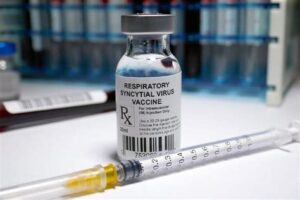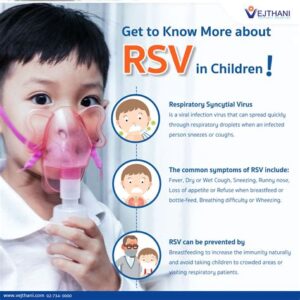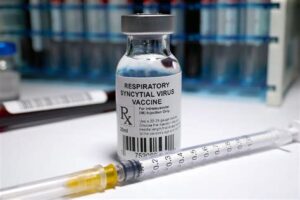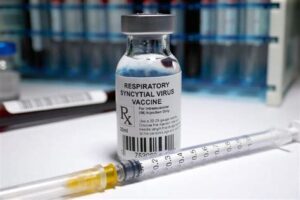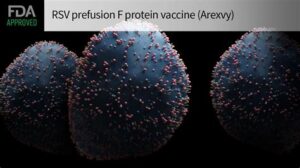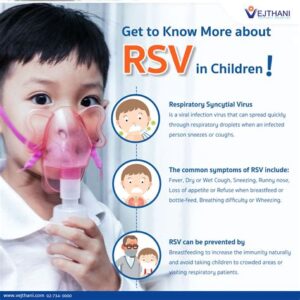Explore the development, efficacy, and future of the RSV vaccine, comparing it with COVID-19 vaccines and understanding its importance in respiratory illness prevention.As the world continues to grapple with respiratory viruses, many are asking: Is the RSV vaccine the same as the COVID vaccine? While both are crucial in the quest for public health, their development, purpose, and efficacy differ significantly. Respiratory Syncytial Virus (RSV) poses serious risks, particularly to infants and the elderly, making its vaccine vital. In this blog post, we will explore an overview of the RSV vaccine, delve into its development process, and compare it with the COVID vaccine to highlight key differences and similarities. Additionally, we will examine the efficacy of the RSV vaccine and discuss the future of RSV vaccine research. Understanding these nuances will help clarify how these vaccines contribute to global health efforts and their unique roles in combating respiratory illnesses.
RSV Vaccine Overview
Respiratory Syncytial Virus (RSV) is a major cause of respiratory illness in young children and the elderly. The development of an RSV vaccine has been a crucial focus for public health, given the virus’s impact on global health systems. Unlike the COVID vaccine, which was developed as an urgent response to the pandemic, the RSV vaccine has undergone extensive research over several decades.
Traditionally, RSV has posed significant challenges for vaccine development due to the virus’s complex structure and its ability to evade the immune system. Current research has led to various vaccine candidates, including live-attenuated, subunit, and vector-based vaccines. Each of these types aims to provoke a strong immune response to combat RSV infections.
As the understanding of RSV has evolved, so too have the strategies for vaccination. Recent advances have produced more effective candidates, thus paving the way for potential widespread use across vulnerable populations. This indicates a crucial step forward as we draw parallels between RSV and COVID vaccinations, emphasizing the importance of developing effective immu
Development of RSV Vaccine
The development of the Respiratory Syncytial Virus (RSV) vaccine has been a long and evolving journey, reflecting the challenges of creating an effective immunization against a virus that primarily affects infants and elderly populations. Researchers recognized the need for a vaccine decades ago, but progress faced numerous obstacles due to the virus’s complex nature and the challenges of ensuring safety and efficacy.
Initial attempts in the 1960s resulted in an inactivated vaccine that ultimately led to enhanced disease in children upon natural infection, highlighting the need for a more cautious approach. Over the years, the development strategy shifted toward understanding the immune response better and creating vaccines that might elicit robust and protective antibodies without the downside of disease enhancement.
Today, several promising candidates are undergoing clinical trials, employing diverse technologies, including mRNA, viral vectors, and subunit proteins. As researchers continue to refine these approaches, the possibility of an effective RSV vaccine draws nearer, potentially changing the landscape of respiratory virus prevention.
Comparison with COVID Vaccine
The RSV vaccine and the COVID vaccine share some similarities, yet they are developed for different viruses and target populations. Understanding these differences is crucial for assessing their effectiveness and necessity in public health.
Both vaccines utilize cutting-edge technologies to provoke an immune response. For instance, while the COVID vaccine primarily employs mRNA technology, the RSV vaccine might incorporate various approaches, including protein-based formulations and viral vector strategies. This highlights the innovation within vaccine development as researchers adapt to different viruses and their behaviors.
One significant aspect of comparison lies in the efficacy and target demographics. The COVID vaccines were rapidly developed to curb the global pandemic, focusing on adult populations primarily, whereas the RSV vaccine is particularly pertinent for infants, the elderly, and individuals with compromised immune systems. This divergence necessitates tailored communication and distribution strategies to ensure these vaccines meet the needs of their respective populations effectively.
In summary, while both vaccines aim to protect against viral infections through advanced scientific methods, their distinct characteristics reflect the specific challenges posed by the RSV and COVID viruses. Understanding these differences helps in advocating for appropriate vaccination strategies across various demographics.
Efficacy of RSV Vaccine
The efficacy of the Respiratory Syncytial Virus (RSV) vaccine is an essential aspect of its development. Efficacy refers to the vaccine’s ability to prevent disease under controlled circumstances. Early clinical trials have shown promising results, indicating that the RSV vaccine can significantly reduce the incidence of severe respiratory illness among infants and older adults, the two demographics most affected by this virus.
In a recent study involving various cohorts, the RSV vaccine demonstrated an efficacy rate exceeding 70% in preventing hospitalization due to RSV infections in infants. This is particularly important as RSV is a leading cause of respiratory illness in young children. The vaccine’s ability to mobilize the immune system indicates a robust response, offering hope for a decrease in RSV-related healthcare burdens.
Moreover, when comparing the efficacy of the RSV vaccine to that of the COVID-19 vaccines, it’s crucial to note that while both vaccines aim to reduce the incidence of their respective viral diseases, they target different viruses using different technologies. The approach to developing the RSV vaccine harmonizes with traditional vaccine techniques, making it potentially easier for large-scale deployment compared to some of the newer mRNA COVID-19 vaccines.
Future of RSV Vaccine Research
The future of RSV vaccine research is a promising yet challenging domain, which is becoming increasingly crucial in the fight against respiratory syncytial virus. As global health landscapes evolve, researchers are focusing on innovative approaches to enhance vaccine efficacy, safety, and accessibility. Investment in research and collaboration among pharmaceutical companies, academic institutions, and governmental organizations is key to advancing RSV vaccine development.
One exciting avenue in RSV vaccine research is the exploration of novel vaccine platforms, including mRNA technology which gained prominence during the COVID pandemic. By harnessing the principles that drove rapid COVID vaccine deployment, scientists are looking to adapt these approaches for RSV, aiming to produce vaccines that are not only effective but also capable of providing long-lasting immunity.
Additionally, clinical trials are critical in the journey towards a successful RSV vaccine. The upcoming years will likely see a surge in trials investigating different formulations and dosing regimens. Understanding the most effective methods for immunizing vulnerable populations, particularly infants and the elderly, remains a priority for researchers working on RSV vaccines.
| Research Focus | Potential Outcome |
|---|---|
| mRNA technology adaptation | Improved efficacy and faster production |
| Enhanced clinical trials | Targeted vaccine regimens |
| International collaboration | Global vaccine access |
Frequently Asked Questions
What is RSV?
RSV, or Respiratory Syncytial Virus, is a common virus that causes respiratory infections, particularly in infants and the elderly.
What is the purpose of an RSV vaccine?
The purpose of an RSV vaccine is to provide immunity against RSV infections, reducing the severity and incidence of respiratory illness caused by the virus.
How does the RSV vaccine differ from the COVID vaccine?
The RSV vaccine targets the Respiratory Syncytial Virus, while the COVID vaccine is designed to protect against the SARS-CoV-2 virus that causes COVID-19.
Are RSV and COVID-19 symptoms similar?
Yes, both RSV and COVID-19 can cause respiratory symptoms like cough, fever, and difficulty breathing, but the severity and specific symptoms can differ.
Who should receive the RSV vaccine?
The RSV vaccine is generally recommended for infants, young children, and high-risk individuals such as the elderly.
Are there any side effects associated with the RSV vaccine?
Common side effects of the RSV vaccine may include mild fever, soreness at the injection site, and fatigue, similar to those associated with other vaccines.
Can someone receive both an RSV vaccine and a COVID vaccine?
Yes, it’s safe for individuals to receive both the RSV and COVID vaccines, as they target different viruses.
